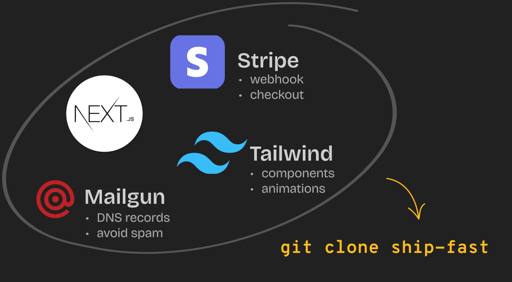Fairphone announces the €599 Fairphone 6, with a 6.31" 120Hz LTPO OLED display, a Snapdragon 7s Gen 3 chip, and enhanced modularity with 12 swappable parts
-
Maybe you could start a competitor that produces a similar spec phone for $100?
And with the same ethics standards
-
No one has been using aux cable mobile headphones for the past 10 years. Headphone jack is e-waste at this point. bluetooth audio is great and if you really want to be a boomer you can use the usb C headphones.
Headphone jack is e-waste
you can use the usb C headphones
What the absolute fuck are you talking about? What am I supposed to do with the dozen wired headphones I already have? Some of them decades old? Throw them in the garbage? Sounds real eco-friendly.
bluetooth audio is great
It is. We had it on phones since before the original iPhone. No one wants to take that away.
Problem is BT headphones last 2 years then they go in the garbage because the batteries are dead. How eco-friendly is that!?
-
how many times does the average person use wireless charging? Seriously, I haven't seen anyone do that yet, or know of someone who uses that.
and yet that's still a major feature in lots of phones
I use wireless charging every single day and majority of my non techie friends do as well. Its so convenient to have a wireless charger on the desk and put your phone there. They are dirt cheap as well.
-
This post did not contain any content.
OTG compatible is a rare feature, I have an endoscope camera that uses OTG, but not a compatible phone.
Also, no mention of a headphone jack.
-
you use all five every week?
I use them and that's more than reason enough to want a reliable, small, cheap, jack that literally has no downsides and lets me use my devices how I want to use them.
-
Alright what phone are you using with a jack?
Sony Xperia 5V
-
Headphone jack is e-waste
you can use the usb C headphones
What the absolute fuck are you talking about? What am I supposed to do with the dozen wired headphones I already have? Some of them decades old? Throw them in the garbage? Sounds real eco-friendly.
bluetooth audio is great
It is. We had it on phones since before the original iPhone. No one wants to take that away.
Problem is BT headphones last 2 years then they go in the garbage because the batteries are dead. How eco-friendly is that!?
Yes if they've lasted decades thats their job done. Now people are buying usb C headphones and there is no need to continue to support decades old standards. The ewaste from a pair of headphones is tiny so its not worth fretting over.
Also BT headphones last longer than 2 years. Mine are 1st gen samsung buds and going on 5 years at this point and still hold enough charge to listen to music during my work day. If im going to be using them all day I have 1 in and 1 charging in the case and then I can easily have music for 10+ hours on a 5 year old device. If I threw them away today I would consider them to have not been ewaste.
-
This post did not contain any content.
One plus did the same thing. Now they're no different then all the expensive brands out there.
-
Fair enough, feel free to buy USB-C headphones then.
Edit: Time for the real reply.
I never have to charge my wired headphone.
But you still have to charge your phone. When I charge my phone I also charge my headphones. Most wireless headphones notify you in advance when they're running low, in my experience enough in advance to not run out before charging again. And finally, charging even once a day is still less overhead than having to manage wires every single time you use the headphones.
Nor do I have to buy new batteries or new headphones when they die
Yeah, you only buy new headphones when the wire gets damaged because that one time you didn't take good enough care of the wire. I personally had to buy a new set of headphones every year because I'm bad with wires. I'd either store them poorly because I was in a hurry or they'd get stuck on something and get yanked. My first BT headphones lasted me 5 years before starting to have noticeable battery issues and then I still used them for another 3 years before the battery was so dead it wouldn't live my daily commute.
overall my response boils down to "just use wired then" because the arguments are silly personal preference arguments and the wider consumer market has already decided that wireless is better. But if you want wired nothing is stopping you from getting USB-C wired headphones.
No consumer decided it would be better without it, there's literally no reason to defend it's removal. It doesn't exist because the phone companies wanted to sell their wireless earbuds, that's it. Anything else they tell you is bullshit.
Why are you trying to justify not having it? You can still use your wireless buds if you want if the port exists, you can still use your USB-C earphones or adapter if you'd like. It can exist in harmony along with other features, like it did for decades before capitalism called for more profits.
-
Yes if they've lasted decades thats their job done. Now people are buying usb C headphones and there is no need to continue to support decades old standards. The ewaste from a pair of headphones is tiny so its not worth fretting over.
Also BT headphones last longer than 2 years. Mine are 1st gen samsung buds and going on 5 years at this point and still hold enough charge to listen to music during my work day. If im going to be using them all day I have 1 in and 1 charging in the case and then I can easily have music for 10+ hours on a 5 year old device. If I threw them away today I would consider them to have not been ewaste.
Yes if they've lasted decades thats their job done
No it means they'll essentially last indefinitely, unlike BT buds.
Now people are buying usb C headphones and there is no need to continue to support decades old standards
No, what's happened is that we went from a single open standard for audio jacks to competing standards (actually 3 of them before the EU stepped in and forced Apple to quit their bullshit). And gained nothing in the process.
The ewaste from a pair of headphones is tiny so its not worth fretting over.
It's not a pair of headphones, it's millions of audio devices.
-
Sony Xperia 5V
I didn't know sony made phones
-
Wait... have you actually lost your mouse? Hilarious if true

Well not actually lost... I just haven't found under which furniture it rolled yet

-
This post did not contain any content.
love fairphone but i cant go bacl from graphene os. its so nice not having google attacjed to everything.
-
LOL, 10m extension cord. I mean you've already established that you don't give a crap about sound quality with your first point but that's just ridiculous. Not to mention the 10m cord that your dragging around the house.
I don't really care about sound quality when using earphones at home because I only use them when there's a lot of ambient noise so the sound will be bad either way. When doing vacuum cleaning, or the dishes, stuff like that. When I still had a smartphone I used a 1,5m extension cord so it wouldn't pull on the jack each time I move, but since it died I'm using a much longer one plugged to my PC (not actually 10m, that was hyperbole, more like 5m). It's not very convenient I'll admit, but it does the job.
-
I didn't know sony made phones
They've always made phones...
-
Maybe you could start a competitor that produces a similar spec phone for $100?
Obviously not, the poor spec choices led to the price. Perhaps the company claiming to focus on ethics could focus on ethics instead of bezel-less design and 120 Hz screens, thus bringing it in at a lower price point. Feel free to critique me now
-
They've always made phones...
Not in the US apparently
-
how many times does the average person use wireless charging? Seriously, I haven't seen anyone do that yet, or know of someone who uses that.
and yet that's still a major feature in lots of phones
If I've asked a question twice and you've danced around it both times, that tells everyone what your answer is.
-
love fairphone but i cant go bacl from graphene os. its so nice not having google attacjed to everything.
If you want something not Google, I used to have Ubuntu Touch on a Fairphone before Australia's 3G network was switched off. It would have to be an older Fairphone however.
-
You are completely and utterly wrong. I'm pretty sure that a $700 phone's dac is better than what you can find on a $5 dongle from god knows where. Also, by design there should be no "noise" or "interference" causing issues with the internal dac. If there is, you bought an extremely shitty device.
You know you've got not argument when you have to compare a $700 dollar phone to a $5 dongle for your argument to even make sense.
First of all, I seriously doubt any $700 phone without a 3.5mm port is going to have a decent DAC, because there's no reason for it. In those phones the DAC is used primarily for phone calls. If those phones had a a 3.5mm port and they were flagship phones then maybe they would have higher quality DACs in them, but then they'd also cost more. And secondly, I wasn't talking about some cheap $5 dongle, I specifically said quality headphones.
-
-
Iran’s internet blackout left people in the dark. How does a country shut down the internet?
Technology 1
1
-
-
Never run out of content again. Mojo Video generates unlimited original videos with a single click.
Technology 1
1
-
Your Brain on ChatGPT: Accumulation of Cognitive Debt when Using an AI Assistant for Essay Writing Task
Technology 1
1
-
ChatGPT 'got absolutely wrecked' by Atari 2600 in beginner's chess match — OpenAI's newest model bamboozled by 1970s logic
Technology 1
1
-
-
Meta and Palmer Luckey's Anduril Industries partner to build EagleEye, a new AI-powered weapons system, including rugged helmets, glasses, and other wearables
Technology 1
1


